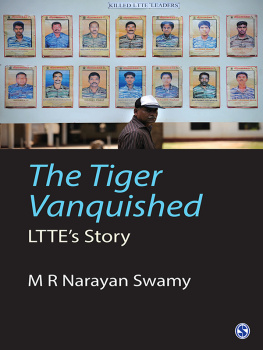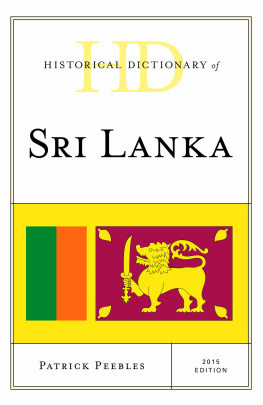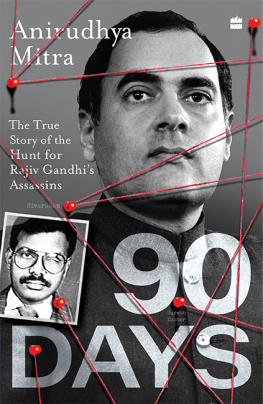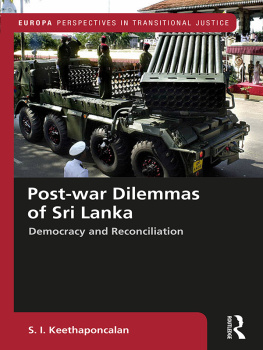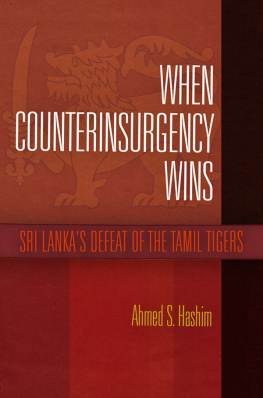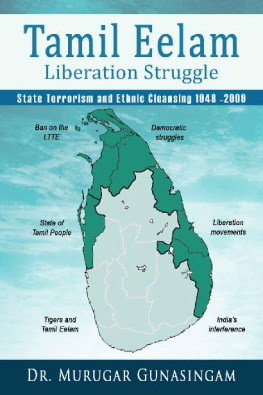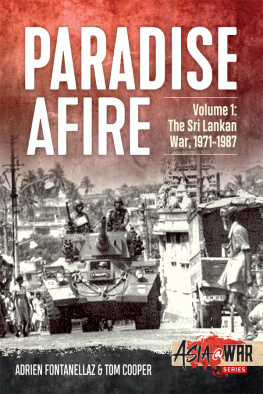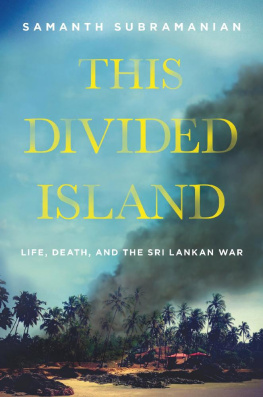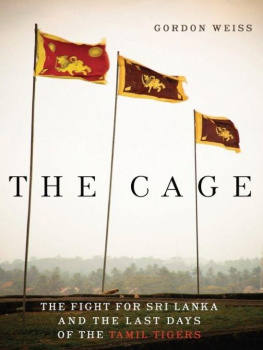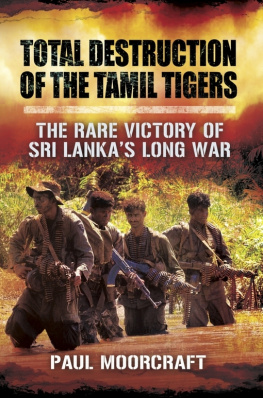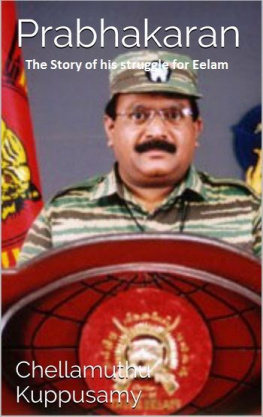This book is also available as an e-book.
THE people who have helped me the most to write news stories and commentaries on Sri Lanka over the yearsand this volume toowish to remain anonymous. Some have gone out of their way and repeatedly too, to provide me a better understanding of Sri Lanka and the many complexities of its brutal conflict. They include Sri Lankans, Indians and people of other nationalities. My interactions with them helped me to shed many cobwebs and to place perplexing events in their perspective. For understandable reasons, some of my sources did not want to be named; others, I know, also would prefer it that way. I am beholden to them all.
I would like to particularly thank newsmakers in Sri Lanka and Norway, who freely spoke to me, often at length, whenever I sought their views. Some of them heldand still holdinfluential positions. They need not have taken my telephone calls or responded to me, but they did. I am grateful to them.
Many others in Sri Lanka have helped me in many ways. These include rights activists, a breed whose commitment to human values is often misunderstood; journalists, who have faced extreme adversity in recent times; as well as ordinary civilians from the north and east, the war theatre for over a quarter century.
Sreeram Chaulia, a voracious reader and a prolific writer, deserves my gratitude for more reasons than one. I thank Vipin Das for poring over the first draft. I owe special thanks to Rajani, my wife and Vidya, our daughter. Rajanis admirable command over English is a source of strength to me. Vidya provides inspiration for what we do.
This is a collection of some of the stories and analytical articles I wrote from 2003, when the LTTE suddenly walked out of the international peace process, to 2009, when the Tamil Tigers were finally defeated. They also include interviews. Most of the writing was done for IANS, the news agency I have worked for since returning to India from Singapore in 2001.
I also wrote, on request, for Mainstream , The Week , The Hindustan Times , The Telegraph , Asian Affairs , Journal of International Peace Operations , Institute of Peace and Conflict Studies, Hard News and World Focus . I thank all these organizations for permitting to reproduce, for this book, what I had written for them.
I have always maintained that there are no experts on the LTTEoutside of the group. The one man who fathered the outfit and was enormously suited to narrate its full story (I doubt he would have done that) was killed in May 2009. Those of us who are students of this conflict can only, hopefully, contribute to a larger and better understanding of the LTTE, the causes that gave birth to it, the reasons it grew into such a formidable entity and the factors that led to its destruction.
The idea for this book was born from this limited agenda. I hope it serves the purpose.
As a nation Sri Lanka has suffered enormously because of the conflict. The terrible agony the war unleashed cannot be adequately gauged even if one is numbed by the voluminous statistics of death, destruction and displacement. Most unfortunately, even the devastating 2004 tsunami failed to bring peace. I do hope, at least now, all communities in Sri Lanka will get their act together for a better future for themselves and their country.
| 1954 | Velupillai Prabhakaran is born. |
| 1975 | Prabhakaran assassinates Jaffna Mayor. |
| 1976 | LTTE is formed. |
| 1978 | LTTE issues first press statement. |
| 1982 | Prabhakaran arrested in India, bailed. |
| 1983 | Prabhakaran shifts to India after anti-Tamil violence. |
| Eelam War I is on. |
| India arms, trains Tamil militants. |
| 1984 | LTTE starts buying weapons from abroad. |
| 1985 | LTTE massacres Buddhists at Anuradhapura. |
| 1986 | LTTE crushes rival group TELO. |
| LTTE bans rival group PLOT. |
| 1987 | Prabhakaran quits India. |
| Indian troops deployed in Sri Lanka. |
| LTTE goes to war against India. |
| 1988 | Ranasinghe Premadasa elected president. |
| 1989 | Premadasa asks Indian troops to go home. |
| Premadasa, LTTE in peace talks. |
| LTTE assassinates Tamil leader Amirthalingam. |
| 1990 | Indian troops quit Sri Lanka; LTTE controls Jaffna. |
| LTTE ignites Eelam War II. |
| LTTE massacres leaders of rival group EPRLF. |
| 1991 | LTTE assassinates Rajiv Gandhi. |
| 1992 | |

